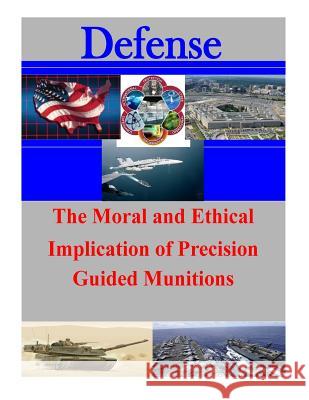The Moral and Ethical Implication of Precision Guided Munitions » książka
The Moral and Ethical Implication of Precision Guided Munitions
ISBN-13: 9781500841034 / Angielski / Miękka / 2014 / 92 str.
Aerial precision is airpower's modern contribution to the just war tradition. The fundamental purpose of this analysis is to examine the ethical and moral implications of this statement and identify some of the inherent dilemmas resulting from it for political decision makers and military strategists. In addition, likely trends and characteristics of American airpower in the twenty-first century are examined. In a world where international relations are dominated increasingly by pragmatism, this study recognizes the importance of moral virtues and ethical reasoning in political and military affairs. This book explores the relationship between one of the most significant military capabilities to emerge in the past century, namely aerial precision-guided munitions, and the just war tradition. The book is straightforward: specifically, there are moral, social, and political dilemmas associated with a "perfect" aerial precision capability and influenced by the just war tradition that may not be readily apparent to political decision makers and military strategists. This work examines the historical development of aerial precision since World War I and the emergence of the just war tradition and international law since 1625. It then identifies specific dilemmas associated with the two sorts of judgments required by the just war tradition, namely jus ad bellum and jus in bello, and explores the ramifications of these dilemmas for consideration by future airpower strategists. The aim of this study is to encourage moral and ethical reflection by politicians and strategists at all levels. The issues at hand are aerial precision doctrine, the predominant use of precision-guided munitions as the modern aerial weapon of choice, and the influence of the just war tradition on strategic decisions.
Zawartość książki może nie spełniać oczekiwań – reklamacje nie obejmują treści, która mogła nie być redakcyjnie ani merytorycznie opracowana.











